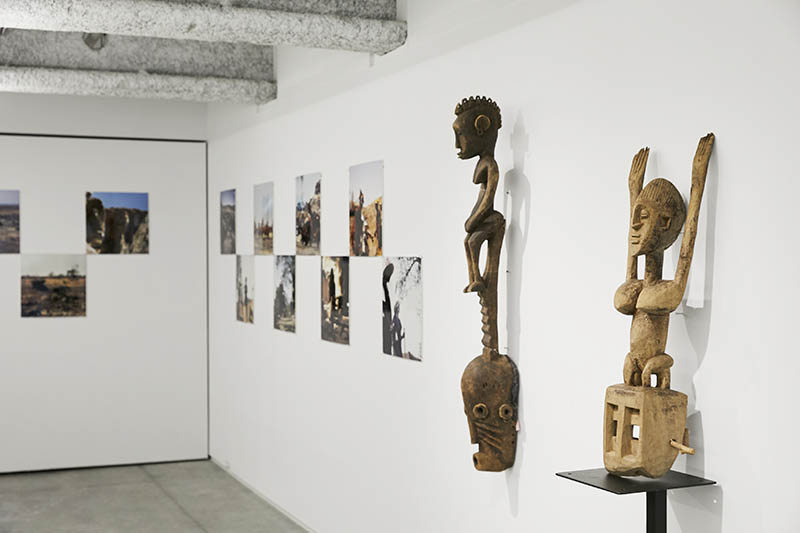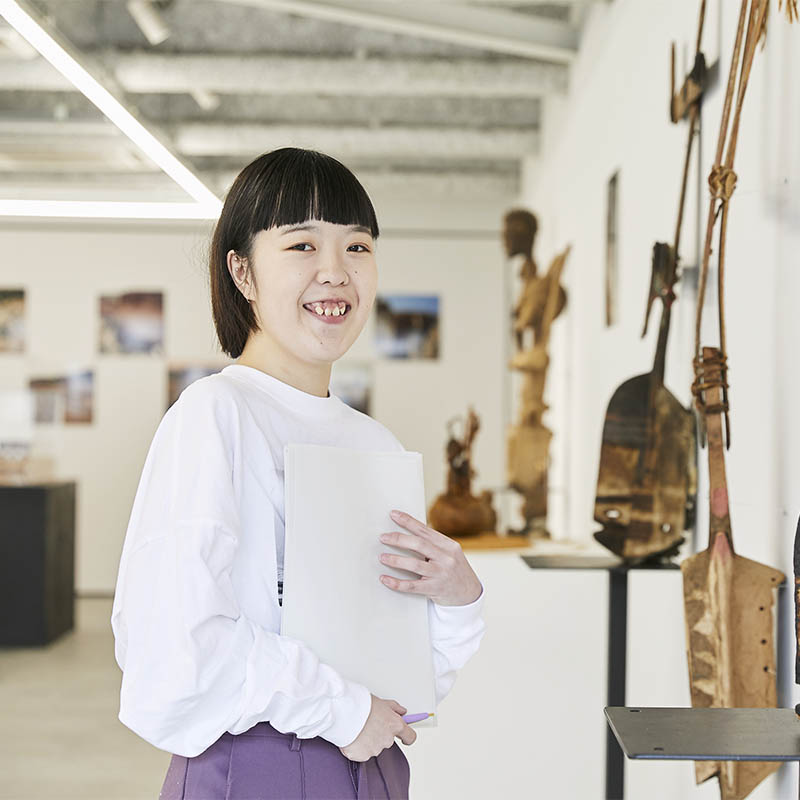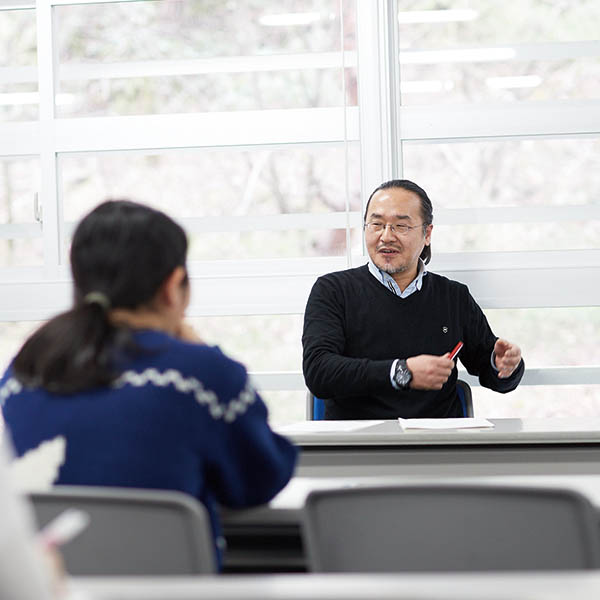Thinking about global society from the perspective of Africa and Asia
There are approximately 7.7 billion people living in the world today, and over 70% of them live in Africa and Asia. With population growth, this percentage may be even higher in 30 years. For many of us, the presence of these regions will grow larger and become more closely felt than we ever imagined. In the African and Asian Culture Course, students study the cultures and societies of Africa and Asia, which cannot be ignored when thinking about the future of global society. We also provide opportunities for students to take their learning further through fieldwork in local areas and interactions with the people who live there. We aim to broaden students' interests and equip them with a multifaceted perspective and the ability to take action through interaction with different cultures.
Subject Highlights

African Art
Many artists of African origin have been gaining attention in recent years. In this class, students learn about art in Africa and the concept of art in general, while also examining what it means for a person to be an artist and what kinds of people fit that definition.
Ethnomusicology
Music exists in every society around the world, and each has its own sense of musical beauty. In this course, students first learn about music theory and how to analyze the musical styles and performance methods unique to various ethnic groups. This course aims to explore the nature and significance of music in a given society.
Ethnomusicology
Music exists in every society around the world, and each has its own sense of musical beauty. In this course, students first learn about music theory and how to analyze the musical styles and performance methods unique to various ethnic groups. This course aims to explore the nature and significance of music in a given society.
What You Will Learn
- The ability to jump into unknown situations and overcome difficulties
- The ability to create new values by accepting different cultures
- The ability to see the nature of people beyond national and linguistic frameworks
Past Graduation Theses
- African Perceptions of Japanese Manga
- Research on the Korean Wave and the Korean Content Industry
- A Study on New Relationships Between Local NGOs and Social Business in Africa
- The Relationship Between Art and Artwork Sales in Nigeria
Careers
Career Opportunities
Travel coordinator, editor, reporter, school teacher, NPO/NGO staff, researcher, and many more
Major Employers
Travel and tourism companies, publishers and internet publications, social business-related companies, companies with international operations (trading companies, manufacturers, foreign companies), NPO/NGO staff, and many more
Travel coordinator, editor, reporter, school teacher, NPO/NGO staff, researcher, and many more
Major Employers
Travel and tourism companies, publishers and internet publications, social business-related companies, companies with international operations (trading companies, manufacturers, foreign companies), NPO/NGO staff, and many more
Voice
-

OGATA Shirabe Current Student Understanding Religion & Lifestyle in Africa Through Clothing
I’ve always been interested in foreign cultures, ethnic groups, and religions, so when I learned more about African countries like Senegal and Burkina Faso during my freshman year, my interest only grew. Eventually I chose to major in the African and Asian Culture Course in the Department of Global Studies. One of the most memorable stories I heard from my “Indigenous Studies” class was on eating insects. My teacher mentioned that they had tried insects at a local market and found them surprisingly tasty, which made me even more eager to experience it for myself.For my third-year fieldwork, I’m planning to go to Senegal. I'm currently drafting a research topic to examine the relationship between fashion garments, religion, and lifestyle behaviors. Like the Japanese kimono and the Korean chima jeogori, it is fascinating to see how clothes are designed to match the cultures and lifestyles in different countries. My ideas have also been inspired by compulsory classes such as "World Religions" and "African Art."As a student at Kyoto Seika, I’d like to tackle and address ‘topics without clear answers’ such as gender, which has interested me since high school. I want to talk with all kinds of people to better understand how status and social standing can influence opinion. I’m always fascinated by the unknown, which leads me to believe that I’m suited for a career in research. -

SIN Chang-Ho Academic Faculty New discoveries from the little things
In my seminar, we study the lifestyles and cultures of East Asia in the modern era. My current research focuses on parasols in East Asia, which was triggered by my interest in the adoption of new customs that could not have developed through any one culture’s traditions alone. There are fresh surprises in reexamining the social changes and westernization of modern East Asia through the lens of the parasol, which was once an item for the "modern girl," Japan’s equivalent of the 1920s American flapper, when it was adopted. In this seminar, I hope that students learn to take an interest in the little things, which may lead them to big, new discoveries.

